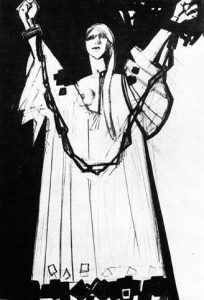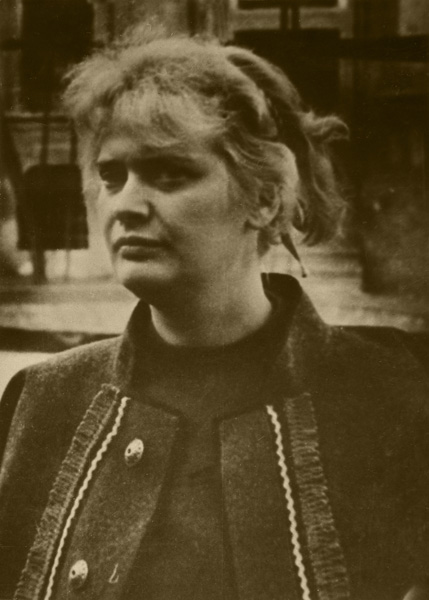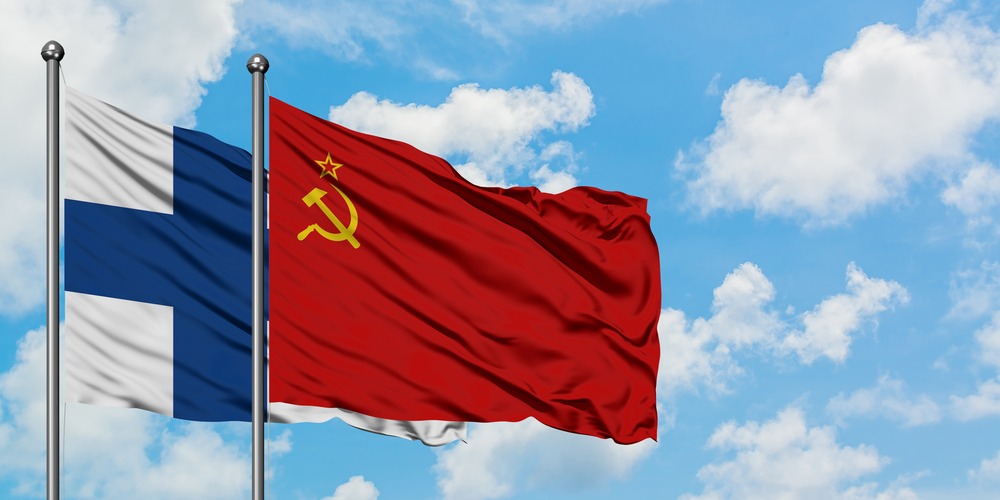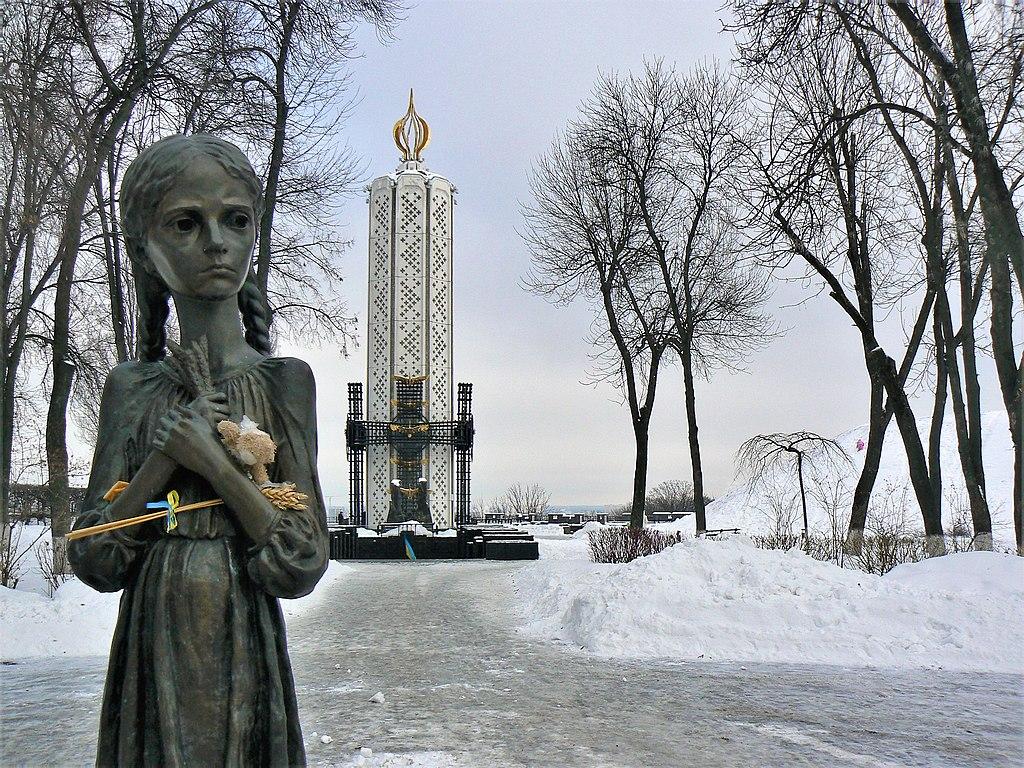Ukrainian artist Alla Horska was found murdered under mysterious circumstances in her father-in-law’s apartment in Vasilkiv, Kyiv oblast on November 28, 1970.
Alla Horska was a renowned Ukrainian dissident artist and member of the Shistdesyatnyky (generation of the 60s). The investigation, led by the Kyiv prosecutor's office, concluded that Horska’s father-in-law had killed her out of personal animosity, and then committed suicide. Horrible rumours about these two deaths spread through the country, while foreign radios created their own versions. Many people suspected that the Soviet authorities had a hand in Horska’s murder and the circumstances of her death. In fact, it is believed that Alla Horska and Vasyl Symonenko were targeted by the KGB for publishing evidence of mass executions in Bykivnia Forest (it is most likely that this prompted the police to attack and beat up Symonenko in Smila, Cherkasy oblast, which resulted in his death a few months later).

Horska was one of the organizers of the Creative Youth Club Suchasnyk (Contemporary, 1959-1964). Alla Horska, Vasyl Symonenko and Les Tanyuk revealed the unmarked mass grave sites where the NKVD, the Soviet secret police, disposed of thousands of executed “enemies of the Soviet state” in Lukianivka and Vasylkivska Cemeteries in Bykivnya (1962 - 1963). All three activists testified and produced concrete evidence before the Kyiv City Council (Memorandum No.2).
Horska attended Vyacheslav Chornovil’s trial in Lviv on September 15, 1967, where a group of Kyiv activists protested against the illegal conduct of court proceedings. In 1968, Horska signed Protest Letter 139 addressed to the head of the Communist Party and the Soviet state demanding a halt to such illegal proceedings. The KGB then began pressuring and threatening the “signers” of this letter.
Rumours were spread in Kyiv and throughout Ukraine that Western intelligence agencies were organizing clandestine Banderite terrorist organizations. Alla Horska was named as one of the top leaders of this "terrorist" movement.
Horska was constantly followed and threatened by unknown individuals. In 1970, she was summoned to Ivano-Frankivsk to testify in the case against V. Moroz, but she refused to give evidence at the trial held behind closed doors. A few days before her death, she submitted a formal protest on the illegality and cruelty of the sentence to the Supreme Court of the USSR.

Alla Horska was buried in a closed coffin at the Berkivtsi Cemetery on December 7, 1970 under the watchful eye of the KGB. The parting words were pronounced by Oles Serhiyenko and Yevhen Sverstyuk; Vasyl Stus read a poem “on behalf of Lviv residents” and Ivan Hel spoke a farewell word in memory of “Alla Horska – a patriotic daughter of the 1960s Ukrainian Revival”. All the fore-mentioned activists were constantly harassed and threatened for their participation in this “nationalist” funeral.
Bohdan Horyn, dissident and human rights activist, wrote the following in memoriam in Nevyholoshene Slovo (Unannounced Word): “Vasyl Symonenko has died, but Symonenko’s ideals live on; Leonid Kiselyov has died, but Kiselyov’s ideals have not perished. Alla Horska has been killed, but no one can kill Horska’s ideals ... From today on, Alla Horska’s name will burn like a bright torch in our spiritual world and illuminate the surrounding darkness with its flames of hope…”






